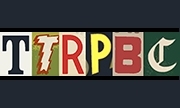Riddle 6 - Drama and action
There is almost no violence or fighting in the book (contra the 1979 film which introduced a couple of combat scenes, presumably to meet more recent expectations). The conflict is verbal and by way of plans and intentions rather than hand-to-hand. Did you find this credible? Interesting? Appropriate for the characters or the era?

 Help offset server costs by donating. This is totally optional. Any overages will go to library fines or new books.
Help offset server costs by donating. This is totally optional. Any overages will go to library fines or new books.

Comments
I don't mind that there's no fighting, but the book lacked immediate tension and stakes for most of it. Even the tensest scene, Carruthers eavesdropping on the conference, didn't have much risk of discovery or close scrapes. Similarly, the duel of wits didn't have a great deal of back-and-forth, as the Germans weren't that aware of the English were investigating them.
I didn't get that at all from the book. I don't think anyone's position of privilege was at stake. Could you please expand?
Which is not unlike how things panned out for the author over the next decade or so
But most of the tension was in the sussing out of information, and the resistance to being sussed in tern by the other side, between the German side and English side. Neither side wanted to tip their hand, so things were cordial on the surface - but the undertones, oh the undertones.
Thanks for explanation. I agree with most of your analysis of Carruthers's change in the book. But I don't see much in the book that supports your final assertion, that he is forever an outsider. The frame story for the novel has an editor carefully anonymising the names and dates in the memoir in order to preserve the dignity of those involved.
Maybe Carruthers is a little less naive than he was before, but that could just be taken as his general coming-of-age across the book.
But I still think the story is one of an independent individual who transcends his society to protect it, and somehow becomes better than it, purified of its faults.
Thus for me it is obviously fantasy, because 1) There is no individual who is independent, and 2) We lack the ability to stand outside our society, because that would require us to stand outside our self and, as everybody knows, no one can be bigger than them self, even if they contain multitudes.
I'm with Apocryphal here. The undertones were so fascinating! I thought the author did an amazing job with the feel of those conversations...
I felt like the biggest tension was whether Carruthers would be fired for missing too much work when he got home.
Yes, employment was kind of lackadaisical back then regarding leave applications... though to be fair to his employer it didn't sound as though he was terrifically busy when he was there so maybe he wouldn't be missed too much...
What would an equivalent book look like today? Someone spends all day tracing cryptocurrency transactions to try and figure out which politician is being paid off by which foreign state?
I've recently been watching The Avengers, the 1960s "espionage" caper TV series. Some of those plots seem to be updated equivalents of the plot in this book. Small scale, strange weirdness that may have huge implications.
I watched it since I was a child in the sixties. The Avengers was formative for me. Not only was Emma Peel my first crush, the show just changed the way my brain worked. I found it brilliant and fascinating.
I used to love it too, and was hugely disappointed with the 1998 film attempt. It's an interesting connection to this book which I hadn't thought of.